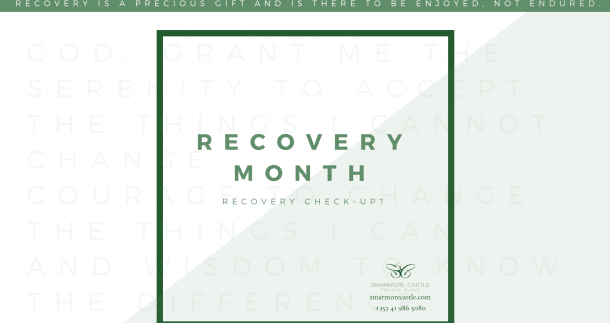- Recovery Month (Recovery Month) is held every September.
- It is a time dedicated to raising awareness about addiction and mental health, reducing stigma, celebrating the successes of people in recovery from addiction, and promoting the idea that recovery is possible for everyone.
- Recovery Month is a worldwide event that has increased awareness of addiction and recovery.
Written by Christopher Burn
What is Recovery Month?
Now in its 29th year, National Recovery Month (Recovery Month) is held every September to demonstrate to people that substance use treatment and mental health services can enable those with a mental and/or substance use disorder to live a healthy and rewarding life. It was started in the United States in 1989 by the Substance Misuse and Mental Health Services Association (SAMHSA) and is now a multinational observance that has increased awareness of such problems and the possibility of recovery.
Why is Recovery Month Important?
Recovery month might seem strange to some people because recovery, in the context of addiction, is for life, not just a month. Many people in recovery from addiction will benefit by seeing recovery month as an opportunity to look at my recovery and take stock: how is it going, what are my needs and how can I do things better?
After all, a recovery month is in effect, formalising a process that those in the Fellowships will recognise as the ‘maintenance steps’ – number 10 – ‘Continued to take personal inventory and when we were wrong promptly admitted it’. And maybe a bit of steps 8, 9, 11 and 12 as well, for good measure!
So how will I go about this?
I think there are a number of ways of checking out my state of ‘recovery health’. I will list those that come to mind and would welcome ideas for more. We are all different but I hope that these considerations will work for me, so that I pass my recovery check-up. They might even help a few others.
Top Ten Recovery Checklist:
-
Am I continuing to put my recovery first? Am I building my life around my recovery, rather than the other way round? I am still very much ‘work in progress’ and any sort of complacency can lead to compromises. This for me, is dangerous.
-
Am I vigilant in avoiding addictive behaviours? Having suffered from gambling problems as well as substance misuse in the past, I need to watch my behaviour carefully, especially when using the computer. Cross addiction can appear at any time.
-
Am I participating fully in the fellowships by attending meetings, using a sponsor and helping others, especially newcomers, to the best of my abilities? There is a big difference between going through the motions and really participating through sharing and socialising with others in recovery.
-
Am I in contact with my Higher Power on a regular basis? Spirituality is a highly personal thing but if we open ourselves to a power that is greater than us, we cease to be self obsessed and we can feel true gratitude.
-
Am I keeping things simple, a day at a time? Most of us over complicate our lives. This month is an opportunity to review our lifestyles and maybe ‘de-clutter’ where this is needed. Perhaps identify situations or people where we have to take a step back and detach.
-
Am I using the serenity prayer regularly? The urge to control and sometimes to change other people is still strong in me. I need to keep reminding myself in times of frustration, that I can only change myself and my responses to others.
-
Am I practising self care in mind, body and spirit? For me this means keeping my interests and relationships in good order, exercising and generally watching my physical health, and using prayer and meditation on a regular basis.
-
Am I practising honesty in all my affairs? Little white lies are not good for me. I am an expert at fooling myself. It leads to disaster.
Am I maintaining healthy boundaries and saying ‘no’ when I need to? Having been a chronic people pleaser, this is still a problem area. I need to practice saying no and I need to ask for help if personal relationships become unmanageable.
-
Am I consciously working on my self esteem? I know that if I can feel that I am doing my best, that I am striving to do the right thing throughout each day, that my self esteem will benefit. I need to focus on doing this, in a positive way, each day.
If my answer to any of these questions is ‘no’, or even a qualified ‘yes’, then I must act quickly and effectively to rectify the situation. Like the car that fails it’s annual NCT/MOT, I am not safe on the road until the problems have been put right. Already, while writing this, I can see areas in need of attention.
So, into action – a meeting tonight, a chat with my sponsor and a fast walk in the park are all on today’s schedule. But first off, the serenity prayer:
God, grant me the serenity to accept the things I cannot change,
Courage to change the things I can,
And wisdom to know the difference.
Thanks Reinhold Niebuhr for writing this awesome prayer, thanks AA, GA and the rest for your support and example, thanks Higher Power for this kick up the backside, thanks Recovery Month for getting me to check myself over.
They say that contentment comes from having three things:
A sense of purpose, a sense of competence and a sense of belonging.
The Fellowships have given me these three things. Recovery is a precious gift and is there to be enjoyed, not endured. I intend to keep it that way.
Written by Christopher Burn
A little about the Author:
Christopher Burn is a Consultant Therapist and External Advisor at Castle Craig Hospital, Scotland. He has worked as a visiting Therapist at Smarmore Castle Private Clinic.
He is an Internationally Certified Psychotherapist (ICADC) and a member of the National Association for Poetry Therapy (NAPT).
He is a writer and speaker on the power of poetry and using creativity to become ‘Better Than Well’.
Books written by Chris Burn: Poetry Changes Lives (2015), The Fun We Had (2016), Pulp Verses (2017).
Daily website: www.poetrychangeslives.com
More Information on getting Addiction Treatment:
If you would like more help and information on addiction treatment, you can contact us here.For more information about the admissions process, or treatment at Smarmore Castle alcohol and drugs rehab centre, please call our confidential phone lines.



